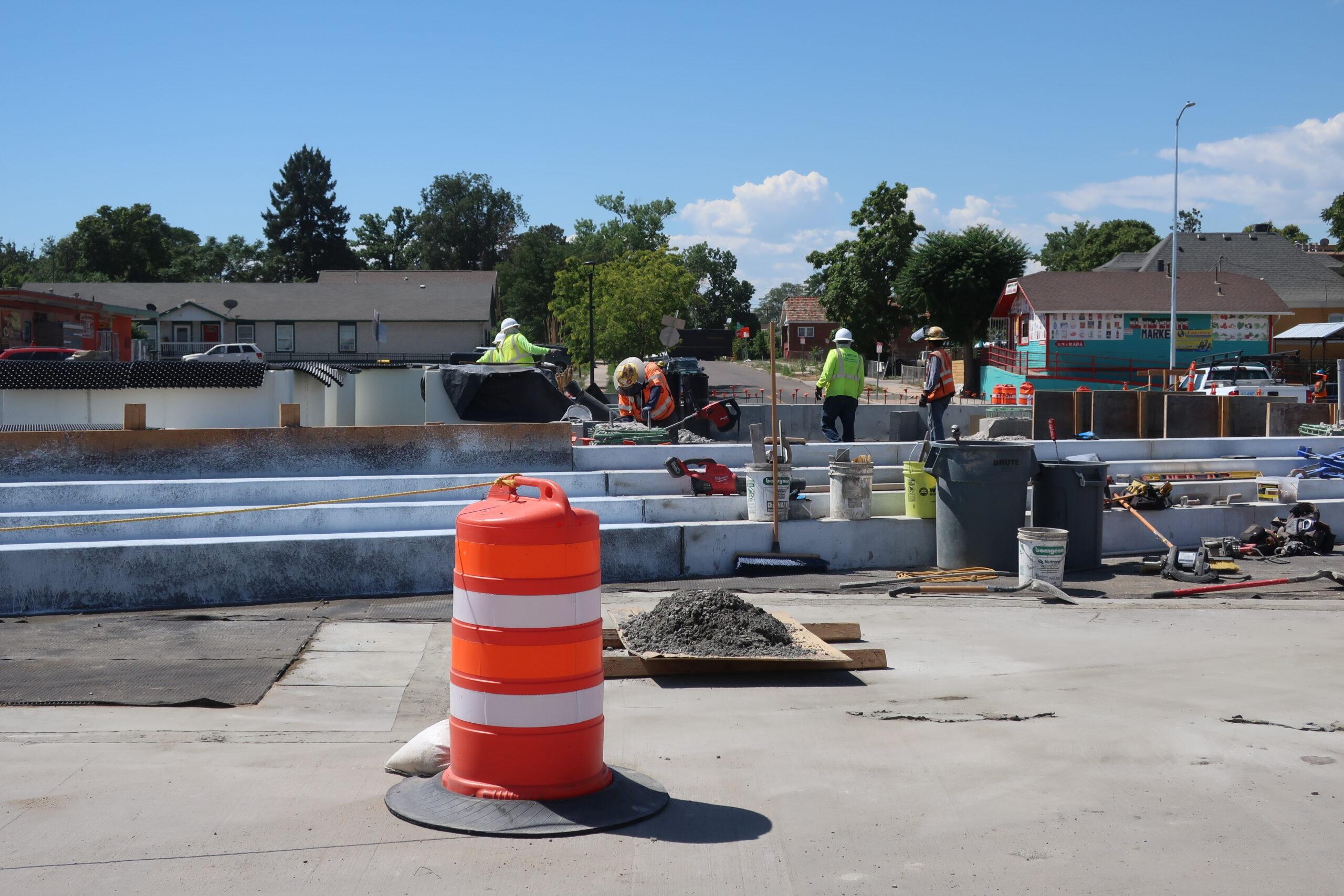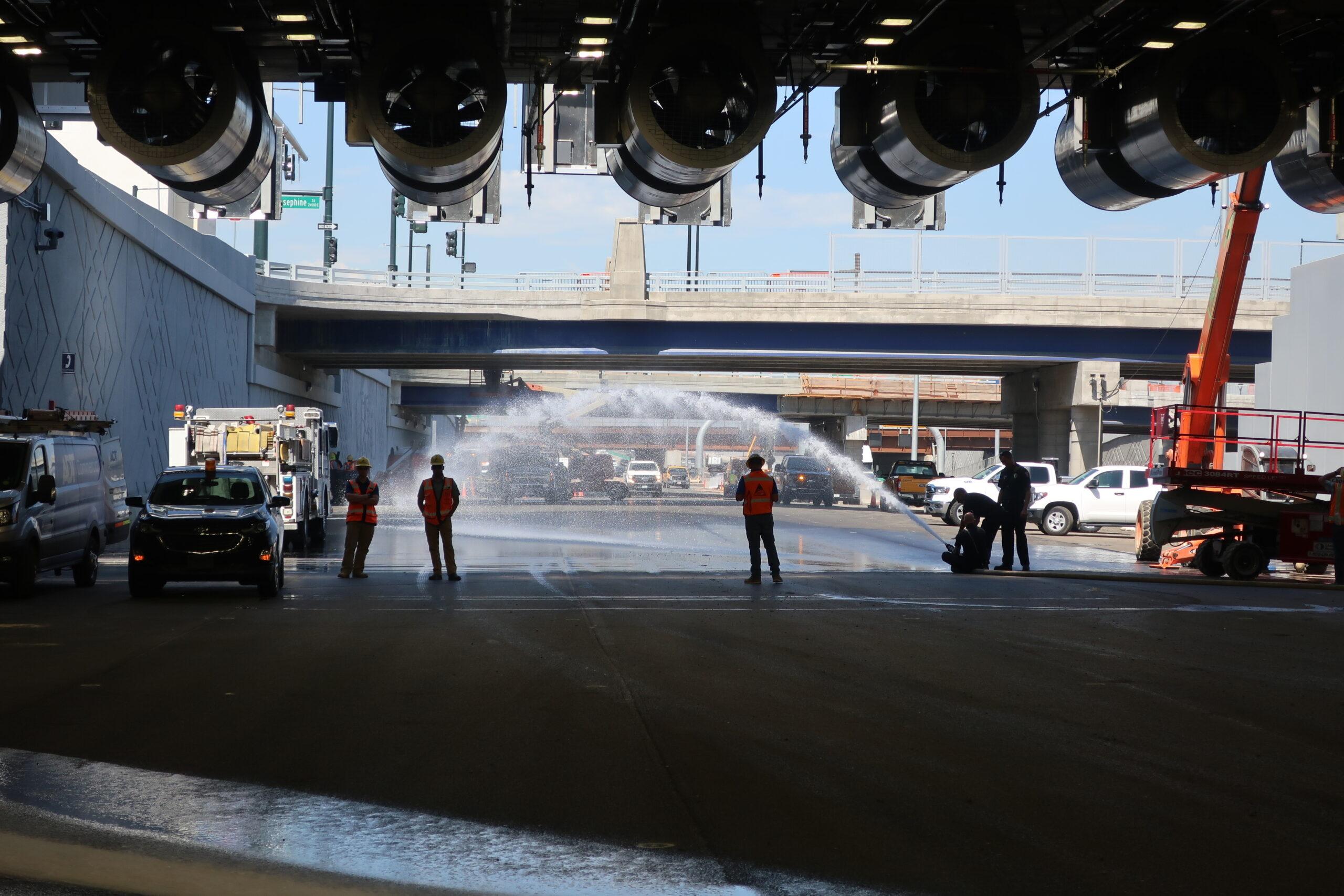Eastbound lanes of Interstate 70 between I-270 and Washington Street will shut down for several days starting at 10 p.m. on Friday so crews can reroute the highway through a newly constructed tunnel.
Expect detours and delays if you're traveling in the area this weekend. When lanes reopen at 5 a.m. on Monday, drivers will no longer go through a cramped, temporary configuration in the westbound tunnel that opened last year.
Instead, all six lanes of eastbound traffic will speed through a new lowered section of road between Brighton and Colorado boulevards where an old viaduct used to be.
"We're really excited about this," said Bob Hays, manager for the Central 70 project. "This is going to help vastly improve the flow of traffic."
This weekend's lane shift is one of the final elements of the busy corridor's $1.2 billion makeover, which includes a tolled express lane in each direction, wider exit ramps and a new four-acre community park.

Construction kicked off four years ago and is expected to wrap up sometime in November of this year. Crews still need to take down a temporary median in westbound lanes, which will happen in September.
The new 1,000-foot eastbound tunnel beneath the Elyria-Swansea neighborhoods mirrors the westbound tunnel.
Light sensors will help fluctuate brightness throughout the day to match conditions outside (that way drivers don't have to worry about adjusting their eyes to darkness while barreling down the interstate).
Other safety features include fire safety fans, new evacuation signage and air quality sensors.
"We want people to be cautious because this is a big traffic shift," Hays said. "We want people to keep flowing through and please do not slow down to look at the new tunnel."
Pedestrians are not allowed in the tunnel. Above the highway, crews have built a new sidewalk system in an effort to reconnect neighborhoods the highway split more than five decades ago.
The years-long Central 70 project has been met with mixed reactions from locals. During early planning, some residents filed lawsuits around concerns about noise and pollution.
CDOT eventually settled those complaints in court. As a part of settlements, the agency pledged to include community members in planning efforts and provide continuous air monitoring during construction.
It also pledged to build a new "cover park," on top of the new interstate tunnels, along with other community improvements. The park, which is still unnamed, will sit directly above the tunnel between Columbine and Clayton streets once it opens in November.
Its main elements include a new soccer field and playground that connects to the nearby Swansea Elementary School building. Crews are also building an amphitheater, community conference room and a "splash-pad" area for kids to play in during the summer.
Concerns about pollution and construction impacts linger for many residents in nearby neighborhoods, said Drew Dutcher, who lives near the site and serves as president of the Elyria and Swansea Neighborhood Association.
Sounds of trucks at work especially are still a major nuisance for neighbors. Many still avoid the area. Beyond the road improvements, the biggest relief will come when work is finished, Dutcher said.
"It's still an active construction site and we don't know what it's going to be like when it's all finished," Dutcher said. "Most of us have never believed all the hype, and highways never should have gone through cities in the first place."
Final touches on the new roadway, including new landscaping and lane painting, will stretch into 2023.
CDOT and Denver's Department of Public Health and Environment will keep providing air quality monitoring in the area after construction wraps up.













